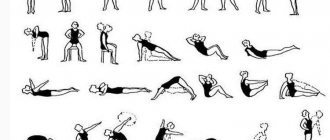Regular exercise has many benefits, including good sleep. They can promote relaxation, reduce anxiety, and normalize your internal clock. Exercise also increases body temperature. When it starts to fall, you feel drowsy. It has long been thought that working out before bed can make it difficult to get a good night's rest. But according to recent research, this is not necessarily the case. Research has shown that you can exercise before bed without disturbing your sleep.
The key is to be mindful of the timing and focus on the type of exercise that won't affect your ability to fall asleep or your sleep itself.
What does research say about working out before bed?
Recent research has challenged the idea that studying too late can disrupt your sleep.
In a small 2021 study, 12 healthy men visited three different overnight laboratories. They did 30 minutes of moderate-intensity aerobic exercise, 30 minutes of moderate-intensity resistance training, or no exercise at all. Each workout ended 90 minutes before bedtime.
While the participants slept in the laboratory, the researchers measured body temperature and sleep quality. The researchers determined that moderate-intensity exercise in the evening did not affect participants' sleep.
Another 2021 study had similar results. Sixteen men and women completed moderate-intensity workouts at various times, including 4 or 2 hours before bed. The researchers found that exercise in the evening did not interfere with participants' ability to sleep.
Finally, a 2021 review analyzed 23 studies on evening exercise and sleep. The review found that evening exercise could improve sleep if the exercise was performed at a moderate rather than vigorous intensity and ended more than 1 hour before bedtime.
Is exercise before bed harmful or beneficial?
In general, regular exercise has a beneficial effect on sleep. “A person by nature should be in motion,” explains Alexander Uridin, master trainer at X-Fit in Russia .
— Sedentary work and a sedentary lifestyle negatively affect all body functions, including worsening sleep. After a hard workout, the duration and quality of sleep significantly improves.” Is it good to exercise before bed? There is no clear answer to this question. “Training is a stress factor for the body,” explains Valentin Zinin, instructor of SuperPopa group programs at Kometa fitness clubs. — Someone after it cannot fall asleep for another 2-4 hours, but remains alert. But for some, an evening fitness class, on the contrary, almost turns them off.”
In fact, there are only two scenarios for the effect of evening training on sleep. “Either the person working out will immediately fall asleep from fatigue, or, on the contrary, will not be able to do this due to nervous overexcitation,” adds Alexander Uridin.
Much here depends on the individual characteristics of the body, the type and duration of the load. For example, an hour-long yoga class in the evening will not affect sleep for most people and will even speed up falling asleep. But intense strength training can invigorate you.
It is clear that not everyone has the opportunity to train in the morning or afternoon. How to fit evening classes into your schedule? Here are some tips to help with this.
Are some pre-bed workouts better than others?
Not all exercise is created equal when it comes to how it affects your sleep. That's why if you want to exercise in the evening, it's important to choose your activity wisely. Also think about the exact duration of your exercise.
In general, if you're going to exercise before bed, it's best to exercise at a light to moderate intensity. This level of activity can help you fall asleep faster and improve your sleep quality.
It is also important to complete your workout at least 1 hour before bed. If possible, try to finish at least 90 minutes before you go to bed. This will give your body enough time to calm down.
Examples of light to moderate activity include:
- yoga
- stretching
- walking
- leisurely swimming
- leisurely cycling
- light and moderate weightlifting
Vigorous exercise should be avoided in the evening. Strenuous physical activity can stimulate your nervous system and raise your heart rate too much, making it difficult to fall asleep.
Examples of vigorous exercise include:
- intense interval training (HIIT)
- run
- jumping rope
- competitive cycling
- Weightlifting
How to independently determine the degree of load intensity
- By heart rate Calculate your maximum contraction frequency (MHR) per minute using the formula: MHR = 220-age For example, you are 30 years old, MHR will be 220-30 = 190 beats per minute. It’s not worth accelerating your heart to such a figure, it’s an overload. When training at moderate intensity, the heart rate is 50-70% of the maximum (in our case, it is 95-133 beats/min). All modern exercise machines are equipped with cardiac sensors. You can purchase a custom heart rate monitor to determine your personal training zone.
- By conversation during training
- If you speak freely, the intensity is low.
- Short phrases with a deep breath between them - medium (approaching high).
- You can say a few words, and then you need to catch your breath - the load is high (bordering on overexertion).
How much exercise is good for sleep?
To improve your sleep, try doing at least 30 minutes of moderate-intensity aerobic exercise during the day or evening.
In addition, regular exercise is essential for restful sleep. Aim for 150 minutes of moderate-intensity aerobic exercise each week. You can do this by doing a 30-minute workout 5 days a week.
If it's hard to commit to 30 minutes at a time, you can break it up into two 15-minute workouts a day, 5 days a week.
Or, if you prefer a more strenuous workout, aim for at least 75 minutes of vigorous activity each week. Just make sure you don't do this type of exercise within a few hours of bedtime.
Find an activity that you enjoy. If you really enjoy an exercise, you will find it easier to do it regularly.
What workouts to choose before bed
If you can’t train in the morning or during the day, and the only opportunity for training may be before bed. In this case, you should not refuse classes citing the harm of evening exercise.
You just need to choose the appropriate activities. For example:
- easy jogging (remember what we consider training )
- walking
- nordic walking
- stretching
- yoga
- Pilates
Everything is in a soft, stress-free format.
What else can help you get a good night's sleep?
In addition to staying active, there are other steps you can take to help improve your sleep health:
- Keep a consistent sleep schedule. Wake up and go to bed at the same time every day, even on weekends. Maintaining a consistent sleep schedule can help stabilize your body's internal clock.
- Avoid electronic devices before bed. Turn off TVs, smartphones, laptops and other electronic devices 30 minutes before bed. The light from these devices can stimulate your brain and keep you stimulated.
- Create a relaxing sleep routine. Take a warm bath, listen to soothing music, do yoga poses or stretches, or meditate before bed.
- Reduce noise pollution. Use a fan, air conditioner, or white noise machine to drown out sounds that may keep you awake.
- Sleep at a comfortable temperature. Maintain your sleeping temperature at or around 18.3°C.
- Relax. Make sure your mattress and pillows are comfortable and in good shape.
- Avoid heavy meals before bed. Try not to eat heavy food within a few hours of bedtime. If you're hungry, eat a light snack, such as toast or a piece of fruit.
- Avoid nicotine, alcohol and caffeine before bed. These substances can interfere with quality sleep.
- Don't sleep long during the day. Avoid naps longer than 20-30 minutes, especially during the day. This may make it difficult to fall asleep at night.
The effect of sport on sleep
As mentioned earlier, exercise is closely related to the quality of your sleep. However, the effect of sport on sleep is not completely negative; if you do everything according to the rules, you can make your night's rest healthier.
- Regular exercise done at the right time (at least 3-4 hours before bedtime) has a beneficial effect on the duration and quality of night's rest. Stress goes away, falling asleep becomes easier, and waking up becomes more pleasant.
- The more a person sleeps, the more sleepy he becomes. If you haven't been to the gym for a long time, you may have noticed how lazy and inactive you have become, and in any free hour you want to take a nap. Increase your physical activity and over time you will see how much more alert you become.
- By losing excess weight through regular exercise, you will also get rid of snoring.
- In the long term, exercise has a beneficial effect on sleep. By leading a healthy lifestyle, you will relieve yourself of the problems with insomnia that many people face in old age. Remember: movement is life. And to live brightly, you need to get a good night's sleep.
conclusions
Exercising before bed is generally not recommended. It was thought that exercising late in the day could make it more difficult to fall asleep.
However, recent research has shown that moderate-intensity exercise does not affect your sleep as long as you do it at least 1 hour before bed.
On the other hand, strenuous physical activity before bed can negatively impact your sleep. This includes workouts such as running, high-intensity interval training (HIIT), and weight lifting.
Although, all people are different. The best time to get active is a time that works for you. The most important thing is that you exercise regularly, whenever that may be.
Power training
It is better to do strength exercises with a barbell, kettlebells, and heavy equipment at least 3 hours before a night's rest. Such sports before bedtime cause a psycho-emotional and physical shake-up in a person. The body tenses up and prepares for vigorous activity. Exercising on exercise machines or performing strength exercises provokes the release of adrenaline and growth hormone into the blood, which excite the body, preparing it for further vigorous activity.
After playing strenuous sports, you need to slowly walk home (if the classes were held in the gym) or do soothing household chores (if the training took place at home). Only after 3 hours can you go to a cozy bed and fall into a healthy sleep.
People who consume sports nutrition should be careful with night training. Some protein shakes contain guarana extract or caffeine, which stimulate the nervous system, making it very difficult to fall asleep after drinking them.
Do not conduct active cardio and strength training a few hours before a night's rest. Physical activity immediately before going to bed is harmful because the body will be too excited and it is unlikely that you will be able to fall asleep. If sleep does occur, it will be superficial and intermittent, and the person will get up in the morning broken and tired.
But doing light workouts 2-3 hours before a night’s rest can have a beneficial effect on its duration and quality. The muscles relax, the nerves calm down, falling asleep becomes much easier, and waking up is easier and more pleasant. Having thoroughly stretched the stiff muscles with exercises, tired, and then taking a relaxing bath, a person will fall asleep well in a couple of hours.
Be careful with your sports nutrition intake during evening workouts
You can exercise before bed, but do it wisely. If you know how many hours before bedtime you can train, there will be no problems with rest.
What types of exercise are acceptable before bed?
If the lesson ends more than 3 hours before the night's rest, then there are no specific restrictions. If your daily routine allows you to start training only in the evening at 20.00, then it is reasonable to wonder whether it is possible to do certain exercises. Despite the individual characteristics of each person, there is a general idea of what types of exercise are acceptable before bed and which are undesirable.
The best choice would be light to moderate intensity cardio training, as well as flexibility and stretching exercises:
- jogging;
- walks (including Nordic walking with poles);
- yoga;
- stretching;
- Pilates;
- cycling;
- pool;
- exercise on cardio equipment (treadmill, exercise bike, ellipse, etc.).
Undesirable types of activity include those activities that are accompanied by increased production of adrenaline:
- high intensity cardio exercises;
- strength exercises with machines and weights;
- sprinting and running endurance training;
- circuit training;
- crossfit;
- dance Sport.
It is worth avoiding late workouts outside in frosty weather, since cold is an additional stress factor that excites the nervous system.
The issue regarding team sports remains controversial. Various authors and experts have different assessments of the benefits of playing football, basketball or tennis in the evening and their impact on sleep quality. Team games limit the ability to adapt the load to suit yourself. Therefore, in this case, everything depends much more on the individual’s individual training.
Thus, we have received an answer to the most frequently asked questions.
- Workouts completed 3 hours before going to bed have no specific restrictions.
- Is it possible to train in the evening at 20.00? Yes, if you manage to finish your work 2-3 hours before bedtime.
- Is it possible to train at 10 pm or 11 pm? Yes, if the workout is not intense, it will take no more than an hour, and you go to bed after midnight.
- The timestamp 23.00 should be taken as foreign. Later training leads to a serious disruption of biorhythms and will not bring any benefit.











